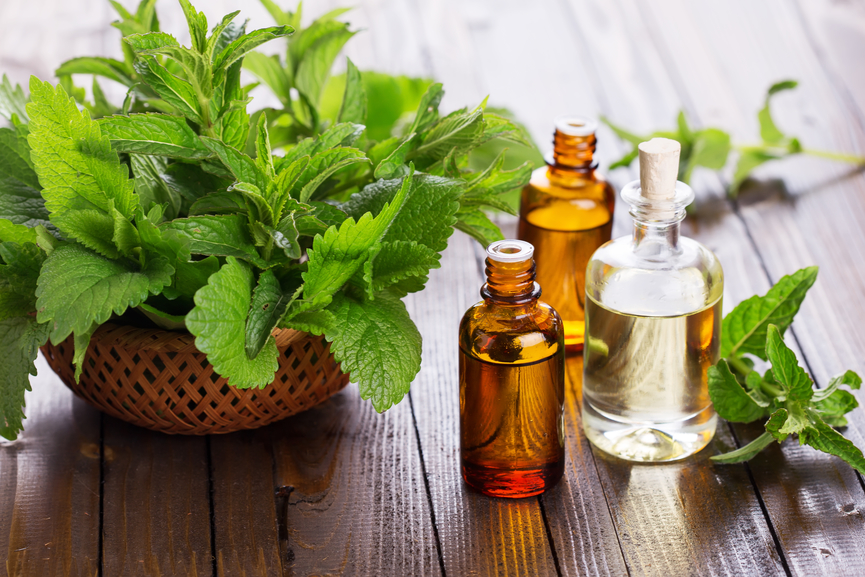If you are interested in essential oils, it’s important that you understand the basic properties of essential oils and how they are made.
This will give you a solid foundation for safely using essential oils for your health and well being. It will also help you when choosing quality essential oils to buy and use.
Understanding Essential Oils
Essential oils are the highly concentrated liquid extracted from leaves, stems, flowers, bark, roots, or other plant elements. This liquid is typically distilled to make a pure oil.
They are not technically oils but are called as such because they share many of the same properties as oils such as poor solubility in water.
Essential oils evaporate into the air which is why they are also called volatile oils.
5 Most Popular Essential Oils:
- Lavender – Brings a natural calm for help with anxiety and restlessness.
- Peppermint – Useful for headaches and nausea.
- Eucalyptus – Effective for sinus and chest congestion.
- Lemon – Used in many natural household products.
- Frankincense – frequently used as a skin treatment.
Most essential oils are clear. Some oils such as orange and lemongrass may be amber or yellow in color. The color of your essential oils may be a clue as to how “pure” they are.
Essential oils are not the same as perfume or fragrance oils. Perfume oils and fragrances are artificially created and do not offer the same therapeutic or medicinal properties of plant-based oils.
Each essential oil has it’s own chemical composition and aroma that can provide psychological and physical benefits.
Depending on the desired result, essential oils may be used in a variety of ways including inhalation (aromatherapy) and application of diluted oils to the skin. They may also be combined into various “blends” in order to achieve a desired effect.
Common Uses for Essential Oils:
- Massage therapy
- Aromatherapy
- Natural remedies
- Soaps & lotions
- Bath salts
- Candles
How Essential Oils are Distilled
There are a few ways in which essential oils may be extracted from their plant derivative. Distillation is the most commonly used form of extraction.
Distillation vaporizes the volatile liquid of the plant (the essential oils), and condenses the vapor back into a purer and more highly concentrated liquid.
The process used to distill the oils impacts their quality greatly. Carefully preserved and distilled essential oils will be of greater quality than ones that are not carefully handled and processed.
The problem with distillation is that heat is used, which can damage the oils if they are not distilled properly. The temperature and length of exposure of the essential oils to heat must be carefully calculated.
Tips for Buying Essential Oils
The market for essential oils can be quite large and confusing. Without a little foreknowledge, it is difficult to know whether or not you are selecting a quality oil.
The market is full of poor quality oils that have been made from poor crops, distilled improperly, or handled improperly, as well as adulterated oils (oils that have other chemicals added to them.)
So how do you find quality essential oils?
Firstly, it’s important to understand that no governmental body exists that grades oils or labels them as “therapeutic grade” or “aromatherapy grade”, so these terms can be misleading to consumers.
Additionally, you should watch out for terms such as “fragrance oil”, “nature identical oil”, or “perfume oil” which may indicate that the oil does not contain pure essential oils (or even any essential oils at all).
The term “pure essential oil” is also not a good indicator of quality, as this could still mean that the oil was made from poor quality crops or distilled improperly.
Some indicators of quality essential oils:
- The botanical (Latin name), country of origin, and method of extraction are listed.
- The vendor promotes that they perform 3rd party testing on their oils and provide samples that you can try before you buy.
- There is detailed information about each oil listed.
- Organic essential oils are generally superior to non-organic oils.
- The vendor is not hesitant to answer detailed questions about the source of the oils and their processing.
For more information about finding quality essential oils, visit AromaWeb.
Remember, essential oils are a very concentrated chemical compound. If you are new to essential oils, make sure you understand how to use essential oils safely.
~ Where to Buy Essential Oils ~
I currently recommend Mountain Rose Herbs or Plant Therapy.

One thought on “What Are Essential Oils?”